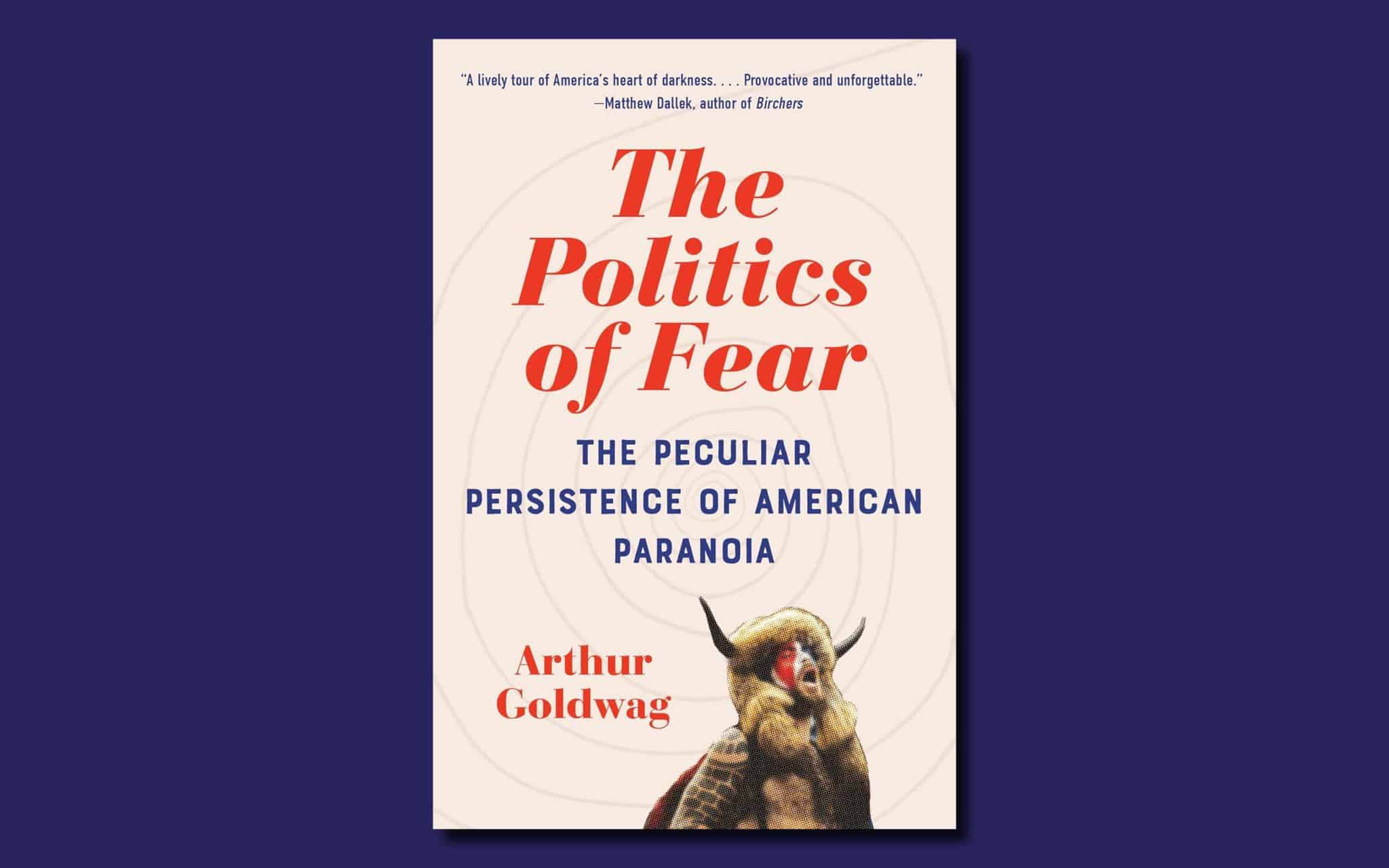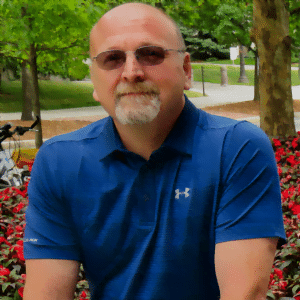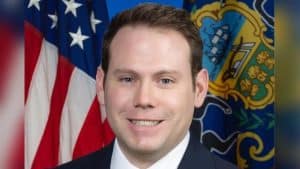To assume that Arthur Goldwag’s The Politics of Fear: The Peculiar Persistence of American Paranoia is a simple review of already well-trod contemporary politics would be a serious mistake. The short (284-page) work offers thoughtful and important insights on a country he describes as “marinated in conspiracy theory.” (4) Goldwag takes his reader on a journey that is vast in its historical depth, and sometimes breathtakingly disturbing.
The Politics of Fear does an admirable job of illustrating a perverse, three-part Venn diagram that dominates much of our contemporary discourse. It is made up of media platforms, elites who lend their authority to misinformation, and the audiences that glean too much of their worldview from both. Within this structure, conspiracy theories are born, evolve, but never seem to die.
Donald Trump thrives in this universe. In his 2017 book Insane Clown President, Matt Taibbi touched on some of the reasons. The New York real estate magnate and his working-class audience share similar likes: fast food, television, and Twitter. But Taibbi also identified darker undercurrents in the relationship, particularly a hatred of journalists and media figures: “book smart college types who make cushy livings pushing words around in what these voters see as competition-averse professions that reward people who in real life need to call AAA to change a tire.” (Taibbi, xxiii)
Class war is clearly at work here. Deep resentments rooted in the left behind regions of the American rust belt motivate millions who have been disenfranchised by the post-industrial, global, information economy. What fosters conspiracy belief is the need to explain – or at least find someone to blame — for the prevailing economic uncertainty at work in so many parts of the country.
But American economic realities are only one layer of the story. Goldwag takes a very long look at the psychology that Trump shares with right-wing conspiracy believers. He observes that: “Nobody constructs a whole worldview out of resentment, anger, and sanguinary revenge fantasies because they feel well loved and secure.” (13) Essentially, Trump’s endless pool of hurt, neediness, and subsequent grievance perfectly overlaps with his constituents. (18) This is not the paranoid “style” that Richard Hofstadter wrote about 60 years ago. It is a way of life. The dispossessed are legion. And Donald Trump is their godhead.
READ: In Bucks County, Right-Wing ‘Media’ Triggers Misinformed Right-Wing Rage
As a historian, I appreciate the depth of Goldwag’s approach to his topic. In class, we normally seek out the origin story for some of the most influential conspiracies traveling around America today. The Protocols of the Elders of Zion, which landed on our shores after World War I, have literary roots in the 19th Century. In terms of the Protocols’ foundations in antisemitism, you can travel back to the Middle Ages to find the “blood libel.”
Goldwag expands this narrative much further. QAnon borrows from a template used by 4th Century Christians against Gnostic heretics. The Gnostics were bigamists, they aborted pregnancies and consumed the fetuses with honey and spice. (46-47) Sound familiar?
Which brings me to the most important contribution of The Politics of Fear – its illustration of the persistent and cyclical nature of conspiracies. We have been through instances of “right-wing populism and blatant hucksterism” many times in American history. (75) We have lived through demagogues like Henry Ford, and Father Coughlin, and Joe McCarthy, and George Wallace. We have seen them prosper on radio, television, and Twitter. We have witnessed them aided and abetted by the likes of Ray Cohn, and Richard Nixon, and Steve Bannon.
In this context, Donald Trump “is a symptom of problems that are hardwired into America’s geography, economy, and culture, and that have bubbled up to the surface of our politics every few decades since the constitution was ratified.” (22) He is like a malignant spore afloat in America, waiting for the right social, economic, and political conditions to land and spread.
We have realized in the past few years that the line between rhetoric and reality in American politics can be thin, fuzzy, or non-existent. Roger Stone likes to dress like a Batman villain and say things like “Fuck the voting, let’s get right to the violence” in front of a documentary crew. (39) We could pass it off as the grasping of yet another clout chaser.
But we know better now.
Fear is a powerful force in American politics today, as it has always been. Can we “fix” it? Goldwag is not ready to declare victory. Far from it. Trump will pass from the political scene, but “we might not recognize his successor until it is too late.” (231)
READ: Understanding Why Christians Are Seduced by QAnon and Conspiracy Theories
However, as cyclical as American history might be, it is not predestination. Pessimism, as justified as it might be, should not be a recipe for inaction. In the weeks and months before the November election, we would be well advised to take some of the lessons Goldwag has offered to understand the state of our country and its politics. It can inform our debates. It can guide our votes.
It might help us break the next cycle of fear, intolerance, and avoidable self-inflicted wounds.
But we have to try first.







